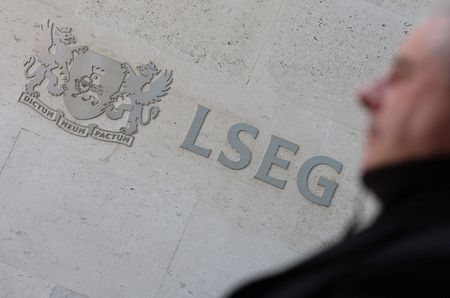PARIS (Reuters) -Fraught French budget negotiations have claimed a third prime minister’s scalp in less than a year, and only days before the government was due to submit its 2026 budget bill to parliament.
Here is a look at what may happen next:
EMERGENCY BUDGET LEGISLATION MAY BE NEEDED
The deepening crisis will disrupt the 2026 budget process, raising the likelihood that emergency legislation will be needed to keep the government running.
Under French law, the government has until October 7 to deliver a 2026 budget bill, although the constitution allows some flexibility until mid-month.
But with so little time to appoint a new prime minister and cabinet, it is increasingly unlikely that President Emmanuel Macron’s administration can deliver the bill on schedule.
In that event, lawmakers would need to pass emergency stopgap legislation to authorise spending, taxation and borrowing from January 1 until a full budget is approved.
France resorted to such emergency measures last December after then-prime minister Michel Barnier’s government was ousted, invalidating his proposed 2025 budget.
ROLLING OVER 2025 SPEND LIMITS – EXCEPT FOR PENSIONS
While the stopgap law would prevent a U.S.-style government shutdown, it imposes strict limits on public finances.
– Spending: The government can issue decrees to roll over 2025 spending limits into 2026, effectively freezing most expenditures without adjusting for inflation.
– Pensions: One key exception is pensions, which automatically rise with inflation—potentially adding billions in costs.
– Taxation: Existing taxes can continue to be collected, but the tax brackets cannot be adjusted for inflation. That could push thousands of households who are currently exempt into income tax liability.
– Borrowing: The law allows the government and social security bodies to continue issuing debt on capital markets.
DISSOLVING PARLIAMENT WOULD MAKE SCHEDULE EVEN TIGHTER
If Macron opts to dissolve parliament and call early legislative elections – as some opposition parties are demanding – the timeline for passing even emergency budget legislation could become dangerously tight.
Under the constitution, there must be at least 20 days of campaigning before the first round of elections can be held, followed by a second round a week later.
After that, newly elected lawmakers would need several days to organise and formally take office.
That would leave very little time in December for the new parliament to pass stopgap budget measures before the start of 2026.
(Reporting by Leigh Thomas; Editing by Hugh Lawson)










